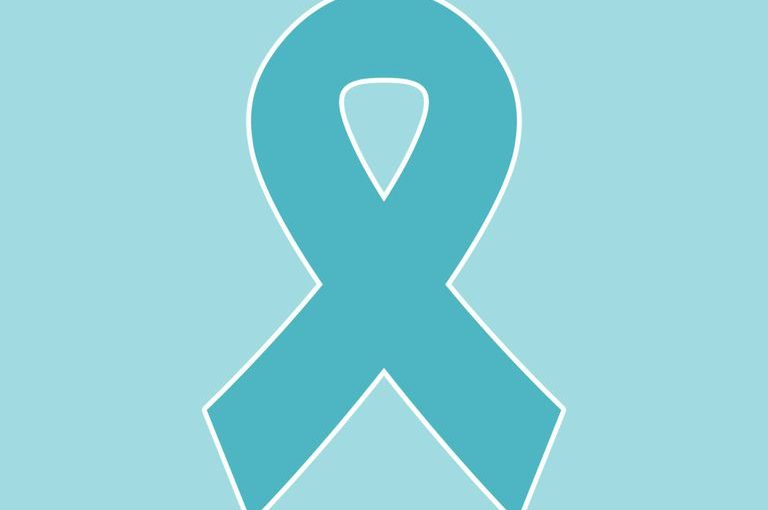Two of the key points this article touches on refer to finding a clinical trial and seeking mental health support. At Clearity, we can help! Check out our Clinical Trial Finder, as well as Steps Through OC, a new support system for women living with ovarian cancer, their family members and caregivers.
By Brittany Risher
Nothing can prepare you for an ovarian cancer diagnosis. Hearing that you have the “Big C” changes your life, and it can be devastating, terrifying, and overwhelming. With so many thoughts racing through your mind, it can be challenging to know what to ask or where to turn.
“Once you hear the word ‘cancer,’ you really don’t hear anything else,” says Antonella Leary, MD, a gynecologic oncologist at the Florida Cancer Specialists & Research Institute. “We go over a lot in that first visit, and there a lot that people can forget, so I recommend bringing family members.”
Whether it’s you doing the talking or the person that’s with you, there are six questions that experts recommend bringing up at those first few appointments. Covering all your basis will help you get the best possible care, and might make you feel like you’re taking back some control.
Should I see a doctor who specializes in the treatment of ovarian cancer? If so, who do you recommend?
“We know that even in the U.S., patients are not being appropriately routed to specialists who treat ovarian cancer,” says Josh Cohen, MD, a gynecologic oncologist at UCLA Health. “Patients live longer and have better outcomes” if they see a gynecologic oncologist rather than a medical oncologist, gynecologic surgeon, or other doctor. That’s because these doctors receive specific training to be able to effectively diagnose and treat cancers of a woman’s reproductive organs.
The takeaway here: Definitely ask your GP or OBGYN if they can recommend a specialist, and make an appointment ASAP.
I’m worried about the cost of treatment. Where can I find help?
As if dealing with cancer weren’t hard enough in and of itself, you may have financial concerns. “Chemotherapy is not cheap. And they are coming out with new medications that are working but are very expensive,” Dr. Leary says. On top of that, some insurance plans are very limited or have enormous deductibles.
Talk to your doctor and insurance provider to learn what costs you may incur and where you can turn for support. Organizations like the American Cancer Society can also refer you to financial programs.
How do I go about getting genetic testing?
Everyone diagnosed with ovarian cancer should have genetic testing, Dr. Cohen says. “We have personalized medicine that we can use to treat patients with certain genetic predispositions,” he explains.
Not only can these tests help you get the most effective care, but if may just keep your family members safe, too. “If you have a genetic predisposition, your family may have an increased risk, and there’s a 50 percent chance you will pass those genes on to your children,” Dr. Cohen explains. “It’s very powerful for a family to know, because you can have risk-reducing surgery to prevent cancer.”
Dr. Cohen adds that there are different genetic tests, and insurance companies may or may not pay for any or all of them. A gynecologic oncologist or genetic counselor can help determine the best test for you, and a representative from your insurance company can tell if you the testing will be covered.
What clinical trials are available that I may qualify for?
Experimental drugs reach the trial phase when researchers think there’s a benefit. If you participate in a clinical trial, you’ll get the standard treatment of care no matter what and then you may also receive a drug that may or may not have benefit.
“What comes with that is the risk of that drug, which is potentially unknown,” Dr. Cohen explains. The upside? The drug may work well for you, and you’ll be giving back by impacting how women are treated in future.
To find a trial near you, talk to your your doctor or hospital, or search ClinicalTrials.gov. One thing to keep in mind: Over the past decade there have been a few reports of patients participating in fake “clinical trials” that never received Food and Drug Administration (FDA) approval. Remember: Legit trials will never ask for up-front payment, and will have a familiar company or sponsor listed on the Clinical Trials website.
Is there a mental health professional you can refer me to?
“There’s a lot that goes into treating and beating ovarian cancer, and it’s a lot of mind over matter,” Dr. Leary says. “Your mindset can help you go through treatment better.”
Therapists can help you work through the mental side of facing ovarian cancer and life after treatment, as well as how to talk to your loved ones about everything you’re feeling and going through. Some clinics have social workers, therapists, or psychologists on staff. If yours doesn’t, your doctor may be able to give you a reference, so be sure to ask.
What is my plan after chemotherapy?
“Ovarian cancer is no longer the death sentence it used to be,” Dr. Leary says. Many women not only survive, but continue to lead rewarding lives. So ask: What is my surveillance plan? What are the signs and symptoms that the cancer may be coming back? And, importantly, how do I live knowing the cancer may come back and not let that interfere with my mental health and day-to-day life?
This article was published by Prevention.


